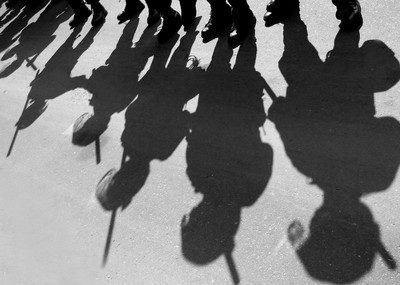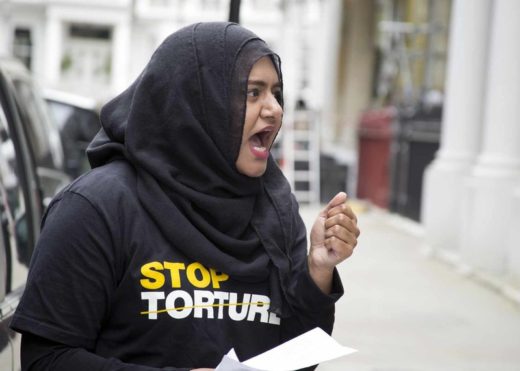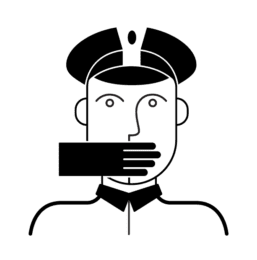“No son, you hit your own head against a wall.”
The prosecutor’s words came as a shock to Youssef as he sat in court, his face still swollen and bloody. The 26-year-old had just summoned the courage to name the three policemen who he said had handcuffed him, blindfolded him and then beaten him. But Youssef, an outspoken youth unemployment activist, was dismissed by the court, and told he had inflicted the injuries on himself. No investigation was opened, and no doctors were sent to examine him. Instead, he was sent to jail for eight months, alongside his younger brother Karim, who also said he was beaten.
Hundreds of men, women and children are speaking out about torture in Morocco and Western Sahara. But their words are falling on deaf ears. Investigations into torture are rare and few torturers have ever been punished.
This year, however, Morocco is reforming its justice system. It’s the country’s biggest opportunity yetto finally stop torture.
Plainclothes officers stamped on my bladder until I urinated. They beat me until I passed out.
Abderrazak, student activist


Today Wafae and Oussama are behind bars. Why?
Both activists spoke out about their torture. Both were swiftly arrested and convicted of “falsely reporting” torture and slandering Morocco’s police force. Yet neither of them had accused the police in their complaints.
Wafae is serving two years in prison, Oussama three. Both are keen students: Wafae spends her days in jail reading for her law degree while Oussama is studying for his high school diploma. But it hasn’t been easy: both of them have separately gone on hunger strikes when they’ve been prevented from studying in prison. Oussama is lonely; his parents cannot afford to visit him more than once a month. But knowing that activists around the world support his quest for justice gives him hope.
I feel great pride in [Amnesty’s] adoption of my and Wafae’s cases, as well as those of all victims of torture.
Oussama Housne
Wafae and Oussama’s fate sends a chilling message in Morocco: anyone who has been tortured and complains could end up behind bars. But torture can only be stopped when torture survivors can safely speak out and claim justice.


Morocco at a crossroads
King Mohammed VI himself has declared that torture will not be tolerated. But in hospitals and courtrooms around Morocco, evidence of torture is regularly ignored.
Mohamed, a 24-year-old activist, was tortured after attending a demonstration in the city of Laayoune. They suspended him in the “roast chicken” position – hanging from his hands with his legs between his arms – and stuffed a rag soaked in urine and bleach into his mouth. But his story was dismissed in court.
The judge said: “'What do you want me to do? Do you want me to go with you and hit [the police officers]?'”
Mohamed, torture survivor
A flawed justice system convicts people based on “confessions” made under torture. And those who torture carry on unpunished. With the upcoming reform of Morocco’s justice system, now is the time to stop torture once and for all.




